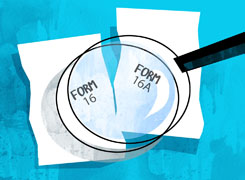Can you suggest me courses only PCB student can do
Ans: 1. Medical Degree (MBBS) and Allied Medical Courses.
Course: MBBS (Bachelor of Medicine, Bachelor of Surgery)
Eligibility: 12th pass with PCB subjects, with minimum 50-60% aggregate marks depending on the college.
Entrance Exams: NEET (National Eligibility Entrance Test) is compulsory for admission in MBBS in India.
Admission Process: Based on NEET rank, centralized counseling by medical authorities.
Competition Level: Very high; NEET is extremely competitive with lakhs of applicants vying for limited seats.
Duration: 5.5 years including internship.
Other Allied Courses: BDS (Dental), B.Sc Nursing, BPT (Physiotherapy), Pharmacy (B.Pharm), B.Sc Medical Lab Technology, Optometry.
Entrance Exams for Allied: Some colleges have their own entrance exams; others accept NEET or merit-based admission.
Career Prospects: High demand in hospitals, clinics, research, pharmaceuticals, and healthcare sectors.
2. B.Sc. in Biotechnology.
Eligibility: Passed 12th with PCB; some colleges require minimum 50-60% marks.
Admission Process: Direct admission or through university-level entrance tests such as CUET, PU CET, KIIT EE.
Entrance Exams: Varies by university; many popular universities conduct entrance exams.
Competition Level: Moderate to high, varies by institute.
Duration: 3 years.
Course Overview: Combines biology and technology for applications in healthcare, agriculture, environment, and research.
Career Prospects: Research, pharmaceuticals, healthcare industry, academics, and biotech startups.
3. B.Sc. in Microbiology / Genetics / Biochemistry / Zoology / Botany.
Eligibility: 12th pass with PCB.
Admission Process: Merit-based or entrance test (e.g., DUET in Delhi University).
Entrance Exams: Entrance based on university.
Competition Level: Moderate.
Duration: 3 years.
Career Prospects: Research, diagnostics, public health, teaching, and industry roles.
4. B.Sc. in Forensic Science.
Eligibility: 12th pass with PCB, sometimes minimum percentage requirement.
Admission Process: Entrance exams conducted by some universities.
Entrance Exams: University-specific.
Competition Level: Moderate.
Duration: 3 years.
Course Overview: Focuses on crime scene investigation, forensic analysis, laws, and criminalistics.
Career Prospects: Police departments, forensic labs, legal firms, private security.
5. B.Sc. in Nutrition and Dietetics.
Eligibility: Pass 12th with PCB.
Admission Process: Merit-based or entrance test.
Duration: 3-4 years.
Career Prospects: Hospitals, wellness centers, research, food industry.
6. B.Pharm (Bachelor of Pharmacy).
Eligibility: 12th with PCB, often with minimum 50%.
Admission Process: Through entrance exams like NIPER, GPAT, or state CETs.
Competition Level: Moderate to high.
Duration: 4 years.
Career Prospects: Pharmaceuticals, drug development, research labs, healthcare.
7. Bachelor in Physiotherapy (BPT).
Eligibility: 12th pass with PCB.
Admission Process: NEET or institute-level entrance exams.
Competition Level: Moderate.
Duration: 4.5 years including internship.
Career Prospects: Clinics, hospitals, rehabilitation centers.
8. B.Sc. in Environmental Science / Forestry.
Eligibility: 12th pass with PCB.
Admission Process: Merit-based or entrance exams in some colleges.
Duration: 3-4 years.
Career Prospects: Environmental agencies, sustainability consultancies, government bodies.
9. B.Sc. in Audiology and Speech Language Pathology.
Eligibility: 12th with PCB.
Admission Process: Entrance exams or merit.
Duration: 3-4 years.
Career Prospects: Hospitals, schools, speech therapy clinics.
10. Other Healthcare & Allied Courses.
B.Sc Medical Lab Technology (MLT)
B.Sc Radiology
B.Sc Optometry
Diploma courses in Nursing, Physiotherapy, Pharmacy, Emergency Medical Technology.
Eligibility Criteria Summary for PCB Courses: Minimum 50-60% aggregate in Physics, Chemistry, and Biology in 12th standard (depends on course and institute).
Physics, Chemistry, and Biology are mandatory core subjects.
Mathematics is usually not required but may be needed for some niche courses like Biochemistry or Environmental Science.
Some courses require clearing specific entrance exams.
For medical and dental courses, NEET scores are compulsory.
For professional paramedical and allied health courses, entrance exams may vary by university.
Admission Process for PCB Courses.
Direct Admission: Based on 12th board exam marks if no entrance exam.
Entrance Exam-Based: Universities conduct their own exams such as:
NEET (for MBBS, BDS, some paramedical courses),
CUET for central universities,
University-specific CETs (e.g., PU CET, KIIT EE),
State-level medical or health science entrance exams.
Counseling usually follows entrance exam results.
Some institutes also allow management quota seats (private colleges).
Competition Level:
The highest competition is for MBBS and BDS seats primarily due to limited availability and large number of applicants.
Moderate competition exists for Biotechnology, Pharmacy, and Nursing courses.
Other B.Sc. life science degrees and allied courses typically have less competitive admission but require strong academic performance.
Entrance exam difficulty varies by institute and course popularity.
Important Entrance Exams for PCB Students.
NEET: For medical courses MBBS, BDS, BAMS, BHMS, etc.
AIIMS, JIPMER, AFMC: Other premier medical entrance exams (recently merged with NEET in many cases).
CUET (Common University Entrance Test): For admission in various B.Sc Honours courses across central universities.
PU CET, KIIT EE, BHU UET: University-specific exams for Biotechnology and Sciences.
NIPER JAM: For postgraduate Pharma courses.
GPAT: For Pharmacy admissions.
Additional Relevant Information:
Many healthcare and biological science courses emphasize practical learning and lab work.
Some courses like Forensic Science and Biomedical Engineering combine biology with technology and law.
Scholarships and reservations are available for reserved categories based on government norms.
Global opportunities: PCB students can pursue similar courses abroad with equivalent admission criteria emphasizing PCB background.
Professional growth in PCB fields requires continuous learning and skill development, especially in research and technology.
Non-NEET alternatives provide good options but require proactive career planning and exploration.
Conclusion:
There are abundant specialized courses exclusively for PCB students beyond the conventional MBBS path. These cover medical, paramedical, biotechnology, environmental sciences, forensic science, nutrition, pharmacy, and allied health domains. Each course has defined eligibility based on PCB subjects with competitive or merit-based admission guided by entrance exams relevant to the course and institution. This diversity offers PCB students many paths aligned with their interests and long-term goals, with promising career prospects in healthcare, research, industry, and academia. All the BEST for a Prosperous Future!
Follow RediffGURUS to Know More on 'Careers | Money | Health | Relationships'.




























